Related Research Articles

The Little Foxes is a 1939 play by Lillian Hellman, considered a classic of 20th century drama. Its title comes from Chapter 2, Verse 15, of the Song of Solomon in the King James version of the Bible, which reads, "Take us the foxes, the little foxes, that spoil the vines: for our vines have tender grapes." Set in a small town in Alabama in 1900, it focuses on the struggle for control of a family business. Tallulah Bankhead starred in the original production as Regina Hubbard Giddens.

Watch on the Rhine is a 1943 American drama film directed by Herman Shumlin and starring Bette Davis and Paul Lukas. The screenplay by Dashiell Hammett is based on the 1941 play Watch on the Rhine by Lillian Hellman. Watch on the Rhine was nominated for the Academy Award for Best Picture and Paul Lukas won the Academy Award for Best Actor for his performance as Kurt Muller, a German-born anti-fascist in this film.

Reuben, Reuben is a 1983 comedy-drama film directed by Robert Ellis Miller and starring Tom Conti, Kelly McGillis, Roberts Blossom, Cynthia Harris, and Joel Fabiani.
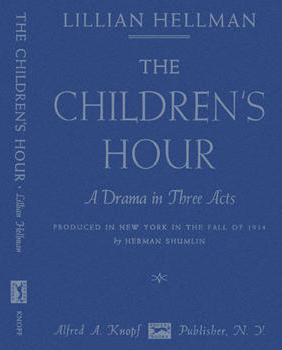
The Children's Hour is a 1934 American play by Lillian Hellman. It is a drama set in an all-girls boarding school run by two women, Karen Wright and Martha Dobie. An angry student, Mary Tilford, runs away from the school and, to avoid being sent back, tells her grandmother that the two headmistresses are having a lesbian affair. The accusation proceeds to destroy the women's careers, relationships, and lives.

The Most Happy Fella is a 1956 musical with a book, music, and lyrics by Frank Loesser. The story, about a romance between an older man and younger woman, is based on the 1924 play They Knew What They Wanted by Sidney Howard. The show is described by some theatre historians and critics as operatic. The original Broadway production ran for 14 months and it has enjoyed several revivals, including one staged by the New York City Opera.

The Corn Is Green is a 1938 semi-autobiographical play by Welsh dramatist and actor Emlyn Williams. The play premiered in London at the Duchess Theatre in September 1938; with Sybil Thorndike as Miss Moffat and Williams himself portraying Morgan Evans, the West End production ran in all for 600 performances. The original Broadway production starred Ethel Barrymore and premiered at the National Theatre in November 1940, running for 477 performances.
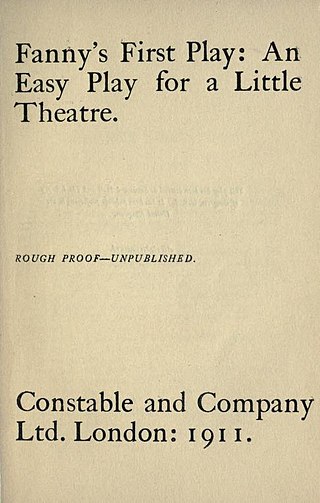
Fanny's First Play is a 1911 play by George Bernard Shaw. It was first performed as an anonymous piece, the authorship of which was to be kept secret. However, critics soon recognised it as the work of Shaw. It opened at the Little Theatre in the Adelphi in London on 19 April 1911 and ran for 622 performances. The mystery over the authorship helped to publicise it. It had the longest run of any of Shaw's plays. A second production opened on Broadway on September 16, 1912 for 256 performances. The play toured the provinces in England in the same year.

Year of the Comet is a 1992 romantic comedy adventure film directed by Peter Yates and starring Tim Daly, Penelope Ann Miller, and Louis Jourdan in his final film role. The film was written by William Goldman and produced by Alan Brown and Phil Kellogg. The plot concerns the pursuit of the most valuable bottle of wine in history. The title refers to the year it was bottled, 1811, which was known for the Great Comet of 1811, and also as one of the best years in history for European wine.
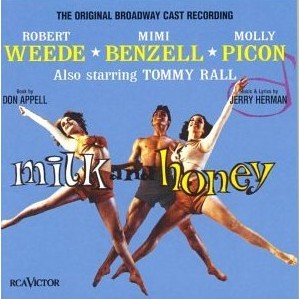
Milk and Honey is a musical with a book by Don Appell and music and lyrics by Jerry Herman. The story centers on a busload of lonely American widows hoping to catch husbands while touring Israel and is set against the backdrop of the country's struggle for recognition as an independent nation. It was Herman's first Broadway book musical following a succession of off-Broadway revues.
The Merchant of Yonkers is a 1938 play by Thornton Wilder.
Wish You Were Here is a musical with a book by Arthur Kober and Joshua Logan and music and lyrics by Harold Rome. The musical was adapted from Kober's 1937 play, Having Wonderful Time, and revolves around a summer camp for adults.
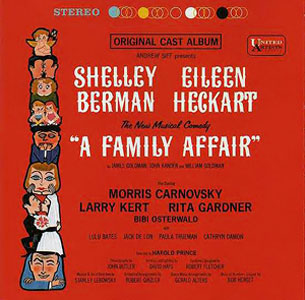
A Family Affair is a musical with a book by James Goldman and William Goldman, lyrics by James Goldman and John Kander, and music by Kander. This was Kander's first show and his only one written without Fred Ebb in Ebb's lifetime.
Kiss Them for Me is a 1945 Broadway production based on Frederic Wakeman Sr.'s 1944 novel entitled Shore Leave. The play ran for 110 performances. Opening at the Belasco Theatre on March 20, 1945, it closed at the Fulton Theatre on June 23 of the same year.

Herman Shumlin was a prolific Broadway theatrical director and theatrical producer, beginning in 1927 with the play Celebrity and continuing through 1974 with a short run of As You Like It, notably with an all-male cast. He also directed two movies, including Watch on the Rhine (1943), which he had first directed and produced on Broadway in 1941.

The Season: A Candid Look at Broadway is an account of the 1967–1968 season on and off-Broadway by American novelist and screenwriter William Goldman. It originally was published in 1969 and is considered one of the better books ever written on American theater. In The New York Times, Christopher Lehmann-Haupt called the book “Very nearly perfect...It is a loose-limbed, gossipy, insider, savvy, nuts-and-bolts report on the annual search for the winning numbers that is now big-time American commercial theatre.”
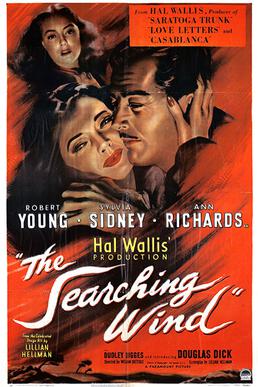
The Searching Wind is a 1946 American drama film directed by William Dieterle and starring Robert Young, Sylvia Sidney, and Ann Richards. It is based on the play of the same name by Lillian Hellman. It had originally been planned for producer Hal Wallis to make the film at Warner Bros., but after he left the studio he brought the project to Paramount Pictures.
Never Too Late is a 1962 Broadway play by Sumner Arthur Long.
I'm Solomon is a 1968 musical with music by Ernest Gold, lyrics by Anne Croswell, and book by Crowell and Dan Almagor. It opened 23 April 1968 and closed 27 April after seven performances.
Before You Go is a 1968 comedy play by Lawrence Holofcener about the relationship between an actress and a sculptor.
Daphne in Cottage D is a 1967 play written by Stephen Levi. The play premiered on Broadway on October 15, 1967 after previews from October 9, 1967, and closed on November 18, 1967 after 41 performances, losing over $100,000. The play starred Sandy Dennis and William Daniels, and was directed by Martin Fried.
References
- ↑ "Spofford". Playbill. Archived from the original on 7 March 2016.
- ↑ Herman Shumlin papers at Wisconsin
- ↑ Goldman p 256
- ↑ Goldman p 256
- ↑ Goldman p 415